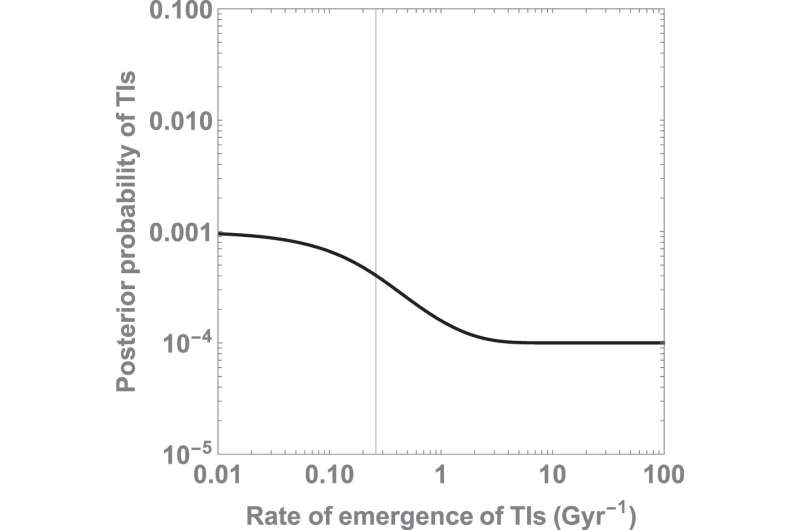A new paper published by Florida Tech astrobiologist Manasvi Lingam examines a core question: Is technology-based intelligence more likely to evolve on land or in water?
“A Bayesian Analysis of Technological Intelligence in Land and Oceans,” a paper by Lingam and researchers from the University of Texas and Università di Roma, was published in the March edition of The Astrophysical Journal.
Humans are a classic example of the kind of technological intelligence that can profoundly sculpt the biosphere through purposeful activities and produce detectable signatures of their technology. In the paper, the authors performed a Bayesian analysis of the probability of technologically intelligent species existing in land-based habitats and ocean-based habitats. It was found that ocean-based habitats should be more likely to host technological species, if all other factors are held equal, because ocean worlds are likely to be much more common.
“And yet, we find ourselves having emerged on land instead of oceans, so there’s a paradox, broadly speaking, out there,” Lingam said.
The paper also explored possibilities of how the emergence of intelligent technology-based life may be disfavored in the ocean, thereby dissolving this paradox.

The probability P(L∣TI) for TIs corresponding to LBHs as a function of the emergence rate of TIs in LBHs (units of Gyr−1). The vertical line is an estimate of the median value of this rate, based on the data from Earth. © The Astrophysical Journal (2023). DOI: 10.3847/1538-4357/acb6fa
“We say that, well, maybe it takes a really long time for life to emerge in the ocean because of various biophysical reasons such as the sensory capacities in land versus water,” Lingam said.
“Another possibility is, due to some set of factors (e.g., energy sources), maybe oceans are not as habitable for intelligent life as we think they ought to be. Currently, the conventional thinking is that liquid water is needed for life. Well, maybe it is indeed imperative for life, but maybe an excess of it (i.e., only oceans) hampers technological intelligence in some ways. So that was another solution to the paradox we came up with.”
The team was able to come to the conclusions in the paper through synthesizing two distinct avenues. First, they drew extensively on data from Earth to ascertain what intelligent life on this planet has looked like, ranging from primates to cephalopods (e.g., octopuses) and cetaceans (e.g., dolphins). Looking at the cognitive toolkit of humans, Lingam said they sought to understand in what subtle ways human abilities differ from the cognitive capacity of marine life such as whales and dolphins. The second part of the research involved mathematics and physics, specifically Bayesian probability theory, which enables one to calculate the relevant probabilities based on some initial expectations.
While the conclusions in the paper were derived on a probabilistic basis, Lingam said there is still a lot of multidisciplinary work that can be done with refining and extending the models.
“I think one of the nice things about this model is that some of the assumptions can be tested,” Lingam said. “They can either be gauged by future observational data from telescopes, or some of them can be tested by conducting experiments and field studies on earth, such as looking further at ethology (animal behavior), delving further into how cognition operates on land-based animals versus aquatic animals. I think there’s a lot of different animals that could be further assessed to refine the study. All these questions can, and hopefully should, attract people from a very wide range of fields.”
For Lingam, future work pertaining to this study will include grappling with the metabolic role of oxygen in shaping the evolution of complex life and how ubiquitous the element may be on various planets. He will also aim to understand what role the levels of oxygen concentration could have on the evolution of intelligent life.
More information:
Manasvi Lingam et al, A Bayesian Analysis of Technological Intelligence in Land and Oceans, The Astrophysical Journal (2023). DOI: 10.3847/1538-4357/acb6fa
Provided by
Florida Institute of Technology
Citation:
Is technology-based intelligence more likely to evolve on land or in water? (2023, April 12)



